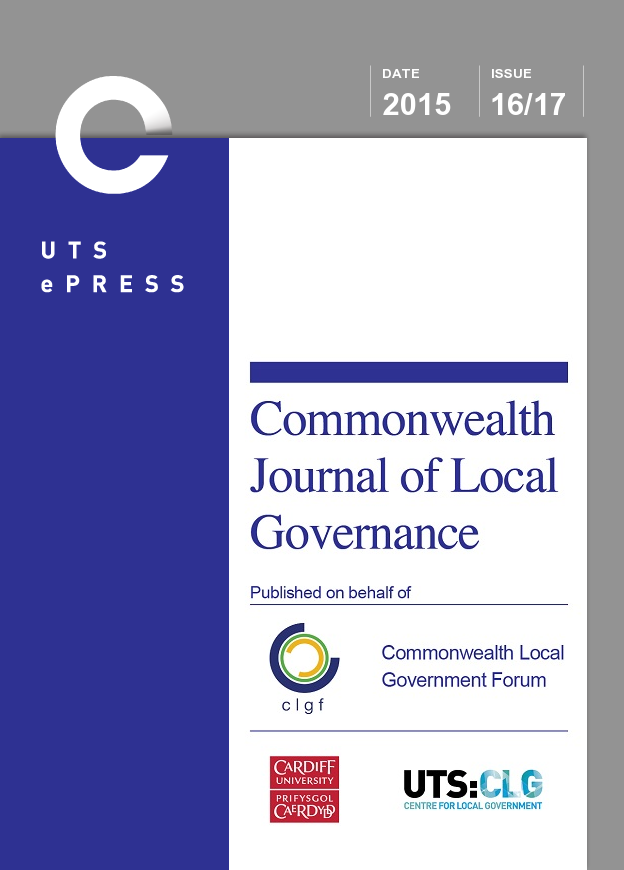Who will look after England’s rural disadvantaged now?
Main Article Content
Abstract
For more than 100 years, non-landed and non-Establishment interests in rural England were represented by a succession of three quasi-independent government bodies (quangos). These were the Development/Rural Development Commissions, the Countryside Agency, and the Commission for Rural Communities (CRC). Their roles embraced, to varying degrees, policy, practice, and advocacy. In 2013 the British government closed the CRC and absorbed aspects of its responsibilities into the civil service. The implications of this decision for the disadvantaged people and places of rural England are explored. The potential for land-related interest groups and traditional elites to increase their influence as a consequence, is considered.
First, by way of context, the histories of the three quangos and the main interest groups are described. The views of the latter – and others with related interests - were sought (unsuccessfully), together with the opinions of people involved in one or more of the quangos, and, or, the civil service successor unit. These are presented and discussed. Conclusions relating to consequential ‘gaps’ in independent policy and research are drawn.
The aim is to stimulate discussion about the implications for rural England of closing the CRC, for it is possible that the loss of this small organization may have unexpected long-term consequences. The eventual significance of this decision has yet to be determined.
Article Details
Issue
Section
Authors who submit articles to this journal from 31st March 2014 for publication, agree to the following terms:
a) Authors retain copyright and grant the journal right of first publication with the work simultaneously licensed under a Creative Commons Attribution License that allows others to share and adapt the work with an acknowledgement of the work's authorship and initial publication in this journal.
b) Authors are able to enter into separate, additional contractual arrangements for the non-exclusive distribution of the journal's published version of the work (e.g., post it to an institutional repository or publish it in a book), with an acknowledgement of its initial publication in this journal.
c) Authors are permitted and encouraged to post their work online (e.g., in institutional repositories or on their website) prior to and during the submission process, as it can lead to productive exchanges, as well as earlier and greater citation of published work (See The Open Access Citation Advantage Service). Where authors include such a work in an institutional repository or on their website (ie. a copy of a work which has been published in a UTS ePRESS journal, or a pre-print or post-print version of that work), we request that they include a statement that acknowledges the UTS ePRESS publication including the name of the journal, the volume number and a web-link to the journal item.
d) Authors should be aware that the Creative Commons Attribution (CC-BY) License permits readers to share (copy and redistribute the work in any medium or format) and adapt (remix, transform, and build upon the work) for any purpose, even commercially, provided they also give appropriate credit to the work, provide a link to the license, and indicate if changes were made. They may do these things in any reasonable manner, but not in any way that suggests you or your publisher endorses their use.
For Issue 13/14, and all issues before, the following copyright applied:
Authors submitting a paper to UTS ePRESS publications agree to assign a limited license to UTS ePRESS if and when the manuscript is accepted for publication. This license allows UTS ePRESS to publish a manuscript in a given issue. Articles published by UTS ePRESS are protected by copyright which is retained by the authors who assert their moral rights. Authors control translation and reproduction rights to their works published by UTS ePRESS. UTS ePRESS publications are copyright and all rights are reserved worldwide. Downloads of specific portions of them are permitted for personal use only, not for commercial use or resale. Permissions to reprint or use any materials should be directed to UTS ePRESS via the journal's main editor, Alison Brown, journal@clgf.org.uk
